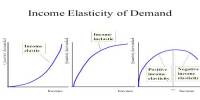The knowledge economy, also known as the knowledge-based economy, is an economic system in which the production of goods and services is primarily based on knowledge-intensive activities that contribute to technological and scientific advancement. It is an economic system in which knowledge and information creation, distribution, and utilization are the primary drivers of economic growth and development.
Traditional factors of production such as natural resources, physical labor, and capital are supplemented and often surpassed in a knowledge-based economy by the value generated by intellectual assets, human capital, and innovative activities. The increased reliance on human capital and intellectual property as sources of innovative ideas, information, and practices is the key component of value. To stimulate and deepen the business development process, organizations must capitalize on this “knowledge” in their production. Physical input and natural resources are used less frequently.
Key characteristics of a knowledge-based economy include:
- Emphasis on Intellectual Capital: The primary focus of economic activity shifts from tangible assets to intangible assets such as research, technology, innovation, education, and expertise.
- Information and Communication Technology (ICT) Advancements: ICT plays a crucial role in facilitating the exchange of information, collaboration, and innovation across geographical boundaries. Technologies like the internet, software, and telecommunications enable rapid dissemination of knowledge.
- Innovation and Creativity: Knowledge-based economies thrive on innovation and creative thinking. Businesses and individuals constantly seek new ways to develop and apply knowledge to create products, services, and processes that add value.
- Education and Human Capital Development: Education and skill development have evolved into critical components of the economy. A skilled and well-educated workforce is a key driver of productivity and competitiveness.
- Research and Development (R&D): Investment in R&D becomes a critical factor in the generation of new ideas, technologies, and solutions. R&D activities help to foster innovation and the generation of new knowledge.
Entrepreneurship and startups are encouraged in knowledge-based economies. Entrepreneurs frequently use their expertise and novel ideas to generate new business opportunities. The global exchange of information and knowledge becomes an economic pillar. Countries with a strong knowledge base are better positioned for international trade and collaboration.
Goods and service value chains are becoming more knowledge-intensive. Value is increasingly derived from product design, branding, marketing, and service. In a knowledge-based economy, collaboration and networks are critical. Companies, research institutions, and skilled individuals frequently form clusters in specific regions, fostering innovation and idea cross-pollination. Because their focus on innovation allows for the rapid adaptation of strategies and solutions, knowledge-based economies are more adaptable and resilient to economic changes and disruptions.
















